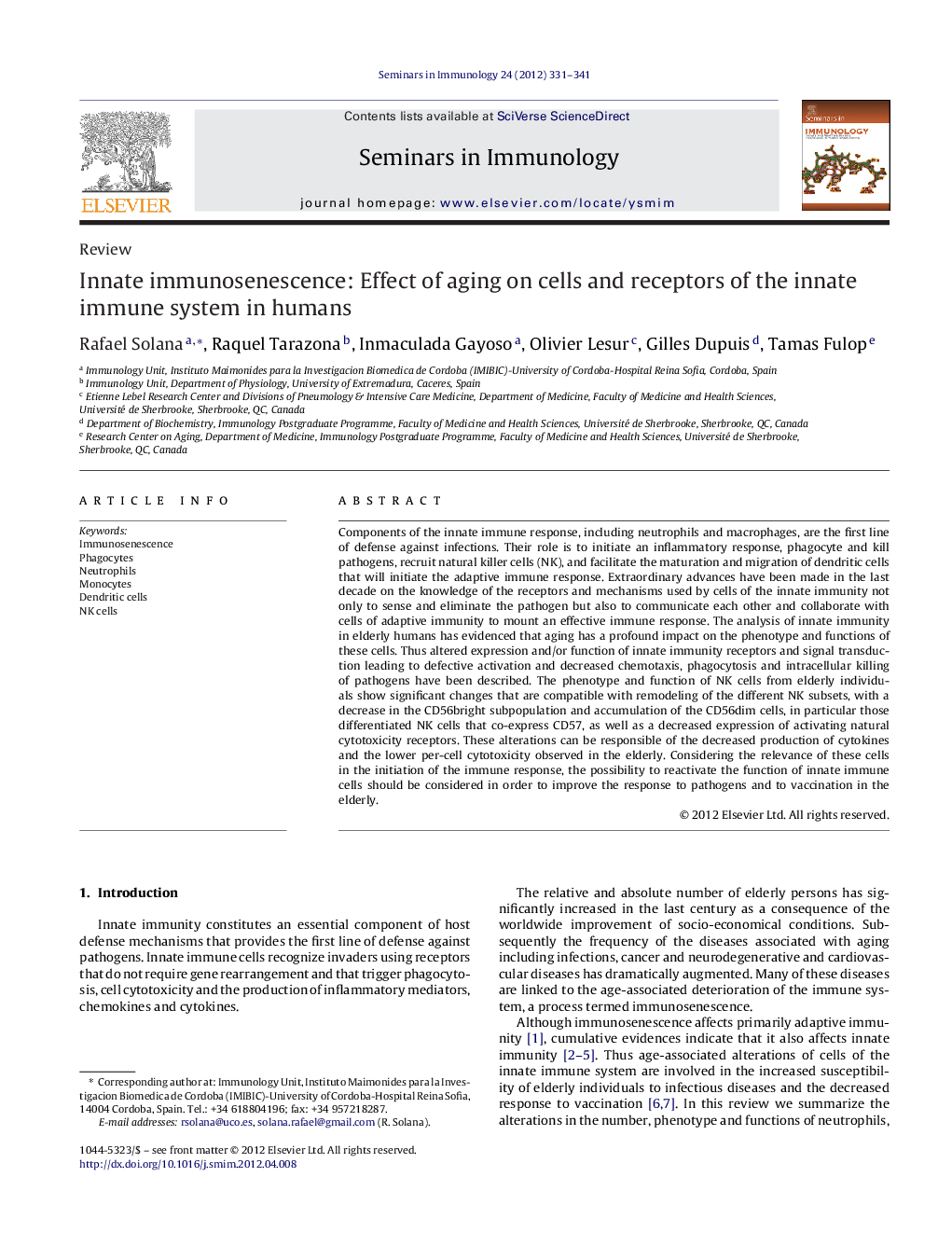| Article ID | Journal | Published Year | Pages | File Type |
|---|---|---|---|---|
| 3391430 | Seminars in Immunology | 2012 | 11 Pages |
Components of the innate immune response, including neutrophils and macrophages, are the first line of defense against infections. Their role is to initiate an inflammatory response, phagocyte and kill pathogens, recruit natural killer cells (NK), and facilitate the maturation and migration of dendritic cells that will initiate the adaptive immune response. Extraordinary advances have been made in the last decade on the knowledge of the receptors and mechanisms used by cells of the innate immunity not only to sense and eliminate the pathogen but also to communicate each other and collaborate with cells of adaptive immunity to mount an effective immune response. The analysis of innate immunity in elderly humans has evidenced that aging has a profound impact on the phenotype and functions of these cells. Thus altered expression and/or function of innate immunity receptors and signal transduction leading to defective activation and decreased chemotaxis, phagocytosis and intracellular killing of pathogens have been described. The phenotype and function of NK cells from elderly individuals show significant changes that are compatible with remodeling of the different NK subsets, with a decrease in the CD56bright subpopulation and accumulation of the CD56dim cells, in particular those differentiated NK cells that co-express CD57, as well as a decreased expression of activating natural cytotoxicity receptors. These alterations can be responsible of the decreased production of cytokines and the lower per-cell cytotoxicity observed in the elderly. Considering the relevance of these cells in the initiation of the immune response, the possibility to reactivate the function of innate immune cells should be considered in order to improve the response to pathogens and to vaccination in the elderly.
► Aging affects the phenotype and functions of cells of innate immunity. ► Expression and function of innate receptors on phagocytes is altered in the aged. ► The production of interferon I/III by dendritic cells is decreased in the elderly. ► Receptor triggered signal transduction on phagocytes and dendritic cells is altered. ► Age-associated changes of NK cells can be explained by the remodeling of NK subsets.
